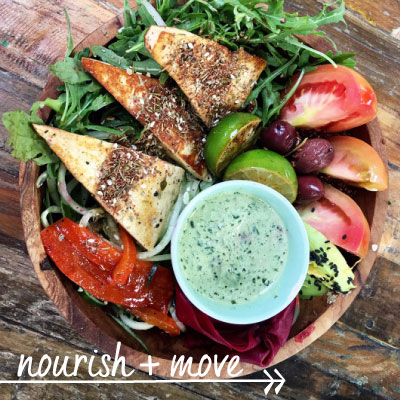Progesterone is one of our key sex hormones and its name gives some indication of what it does in the body (think ‘pro-gestation’). Yet it plays a key role in so much more than fertility. In fact, progesterone is a substance that every woman needs to know about, regardless of whether pregnancy is on her agenda or not, because of its many biological effects.
Progesterone production that is far from ideal is, unfortunately, very common and it’s likely that you have experienced this at some point in your life—if not right now. When we’re not making optimal amounts of progesterone, this can contribute to a range of challenging symptoms in the lead up to and/or during menstruation. The reason for this is because progesterone helps to counterbalance estrogen. So, when we have poor progesterone production, this can tip the delicate balance of our sex hormones—and our body lets us know about it.
Progesterone has a number of important functions in the body. It supports the body’s fluid balance to prevent you from feeling puffy and swollen, and it helps to hold the lining of the uterus in place so that you don’t experience excessively heavy or prolonged bleeding. Not to mention it has anti-anxiety and antidepressant actions, making it a pretty powerful substance that we don’t want to be lacking.
When progesterone is low, signs and symptoms can include:
- Very heavy periods
- Spotting for a number of days leading up to your period
- Bloating and fluid retention
- PMS—especially anxious feelings and irritability leading up to your period
- You may feel like you can’t get your breath past your heart or like your heart is racing in the lead up to menstruation
- Irregular periods
- Missing periods (and pregnancy is ruled out)
- A short luteal phase, which sometimes shows up as a shorter cycle—there’s not enough progesterone to hold the lining of the uterus in place
- A longer cycle, which means an increased number of days between ovulations.
How your body makes progesterone
During the menstruation years, progesterone is predominantly made by the ovaries in a cyclical manner, and much smaller amounts are made by the adrenal glands across your life. The trigger for ovarian progesterone production is ovulation so if we don’t ovulate, we don’t make it. Once ovulation occurs, a temporary gland called the corpus luteum forms in the ovary where the egg was released from. The corpus luteum produces progesterone from that point (after ovulation) up to just before you get your next period and this phase of the cycle is called the luteal phase.
For ease of understanding, the luteal phase is often referred to as the second half of your cycle (think ‘l’ for last half). However, this isn’t technically correct for every woman as depending on her cycle length, the two phases (the follicular phase and the luteal phase) may not be equal halves—their durations can differ. The luteal phase is ideally about two weeks long and progesterone levels peak at the mid-point of this, so this is why if you are having a blood test for progesterone it is best done about seven days before you get your period (so day 21 if your cycle is 28 days long).
What interferes with great progesterone production?
As you now understand, regular ovulation is essential for a woman to produce enough progesterone during her menstruation years. If you aren’t ovulating or you ovulate infrequently, it’s incredibly important to get to the heart of why this is. Commonly, this can be linked to chronic stress or worry, a frantic pace of life, inadequate rest, not feeling ‘safe’ (whatever this means to an individual) physically or emotionally, not eating enough and/or excessive exercise. These are all forms of stress to the body and increase stress hormone production. Not only can chronic stress lead to anovulatory cycles which means no ovarian progesterone production, but it can also contribute to scenarios where ovulation occurs but progesterone production is suboptimal.
Stress is a major contributing factor to low progesterone because of its link to fertility (because your progesterone levels surge after an egg becomes available). If the body is getting the message that your life is in danger—which is what too many stress hormones communicate—the last thing it wants is for you to potentially conceive at a time it perceives as dangerous, as this could mean the baby might be at risk. So, your body thinks it is doing you a favour by downregulating fertility during times of high stress. Processes that aren’t essential to our survival (such as reproductive function) are not prioritised when the body is putting all of its resources into keeping us alive.
There are also life stages where we are more susceptible to irregular ovulation and low progesterone, such as puberty and perimenopause. These are transition phases and it is normal for ovulation to be less regular during these seasons of our life. While many women experience challenging symptoms during perimenopause, it’s important to know that there are things you can do to support your body and experience a gentler transition. During this time, it’s even more important to take great care of yourself in terms of your nourishment and stress management, as excess stress hormone production—which can be driven by worrying, rushing and feelings of overwhelm, daily alcohol consumption over an extended period of time, restrictive dieting or excessive exercise—can still contribute to anovulatory cycles, irregular periods and low progesterone during this life stage.
That said, irregular ovulation or a lack of ovulation can also sometimes occur with other conditions such as polycystic ovarian syndrome (PCOS) or thyroid dysfunction. If you experience unexplained irregular periods or if your periods have gone missing (and you are not using a type of hormonal contraception that causes this), it’s important to check in with your doctor. For more on hormonal contraception and its influence on progesterone production, you might like to read this blog here on the OCP or this one here on the Mirena.
What about progesterone post-menopause?
Progesterone levels are naturally low post-menopause as ovulation is no longer occurring and women in this life stage don’t have the cyclical sex hormone fluctuations that characterise the menstruation years. The adrenal glands become the primary source of progesterone post-menopausally, and these important glands are also tasked with making our stress hormones. Incorporating strategies to help reduce and manage stress or worry, such as daily breath-focused practices and getting to the heart of what stress really is for an individual so you are able to make fewer stress hormones in the first place, is incredibly supportive for women post-menopause and can truly make a difference in how you feel day-to-day.
















